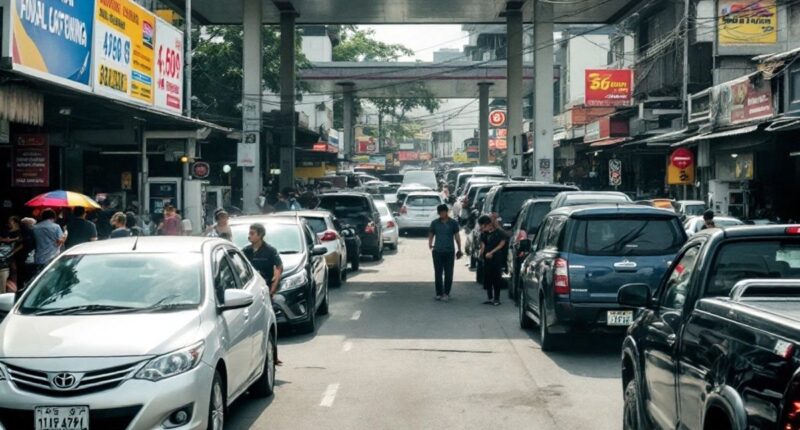The Malaysian government is set to implement a significant rollback of petrol subsidies by mid-2025, a move deemed essential for fiscal reform. Economy Minister Rafizi Ramli has acknowledged the potential public backlash but insists that the reform is crucial for the country's economic health.
Key Takeaways
- Subsidy Rollback: The government plans to cut petrol subsidies, particularly for the wealthiest 15% of income earners.
- Inflation Concerns: The reform is expected to raise inflation and trigger price hikes, with a projected inflation cycle lasting about 12 months.
- Fiscal Health: The move aims to reduce government expenditure on subsidies, which exceeded RM50 billion in 2023.
- Public Sentiment: The government anticipates significant public discontent, as fuel prices are a politically sensitive issue in Malaysia.
Overview Of The Reform
The Malaysian government has long subsidized petrol prices to keep them affordable for citizens, a practice that began in the early 1980s. However, as global oil prices have surged, these subsidies have become a substantial burden on the national budget. In 2023 alone, the government spent over RM50 billion on fuel subsidies, prompting the need for reform.
Economy Minister Rafizi Ramli has described the upcoming changes as a "once-in-a-generation" decision that will affect the daily lives of Malaysians. The proposed tiered subsidy system will maintain current prices for 85% of the population while withdrawing assistance for the wealthiest 15%. This is expected to save the government approximately RM8 billion annually.
Anticipated Challenges
The government is bracing for a backlash as it rolls out this reform. Rafizi has stated, "We are prepared for the choppy waters ahead," acknowledging that many will be unhappy with the changes. The reliance on private transportation in Malaysia makes fuel prices a particularly sensitive issue, and any increase could lead to widespread discontent.
Inflation Projections
Inflation is a primary concern for the government, with Rafizi estimating that any fuel price hike could lead to a 12-month inflation cycle before stabilizing around 2%. The government is considering various mechanisms to cushion the impact on lower-income households, including targeted cash handouts. However, Rafizi cautioned that only 60% of the workforce is in the formal sector, which may complicate the distribution of aid.
Future Implications
The success of this subsidy reform is crucial for Prime Minister Anwar Ibrahim's administration, especially as it seeks to restore investor confidence and improve Malaysia's fiscal health. The government aims to reduce the budget deficit to 3.8% of GDP in the coming year, down from 4.3% in 2024. This reform is seen as a vital step toward achieving that goal.
In conclusion, while the Malaysian government prepares to implement this significant subsidy reform, it faces the dual challenge of managing public sentiment and ensuring economic stability. The coming months will be critical as the government navigates these changes and seeks to maintain its support among voters while addressing the pressing need for fiscal reform.
Sources
- Rafizi: ‘Once-in-generation’ RON95 subsidy reform painful but needed for Malaysia’s fiscal health | Malay Mail, Malay Mail.
- ‘Choppy waters ahead’ for petrol subsidy cut but Malaysia will factor in not just household income: Minister – CNA, CNA.
- Malaysia braces for ‘once-in-a-generation’ petrol subsidy rollback | South China Morning Post, South China Morning Post.
- Govt bracing for backlash over fuel subsidy revamp, says Rafizi | FMT, Free Malaysia Today.
- Govt bracing for backlash over fuel subsidy revamp, says Rafizi, The Edge Malaysia.

